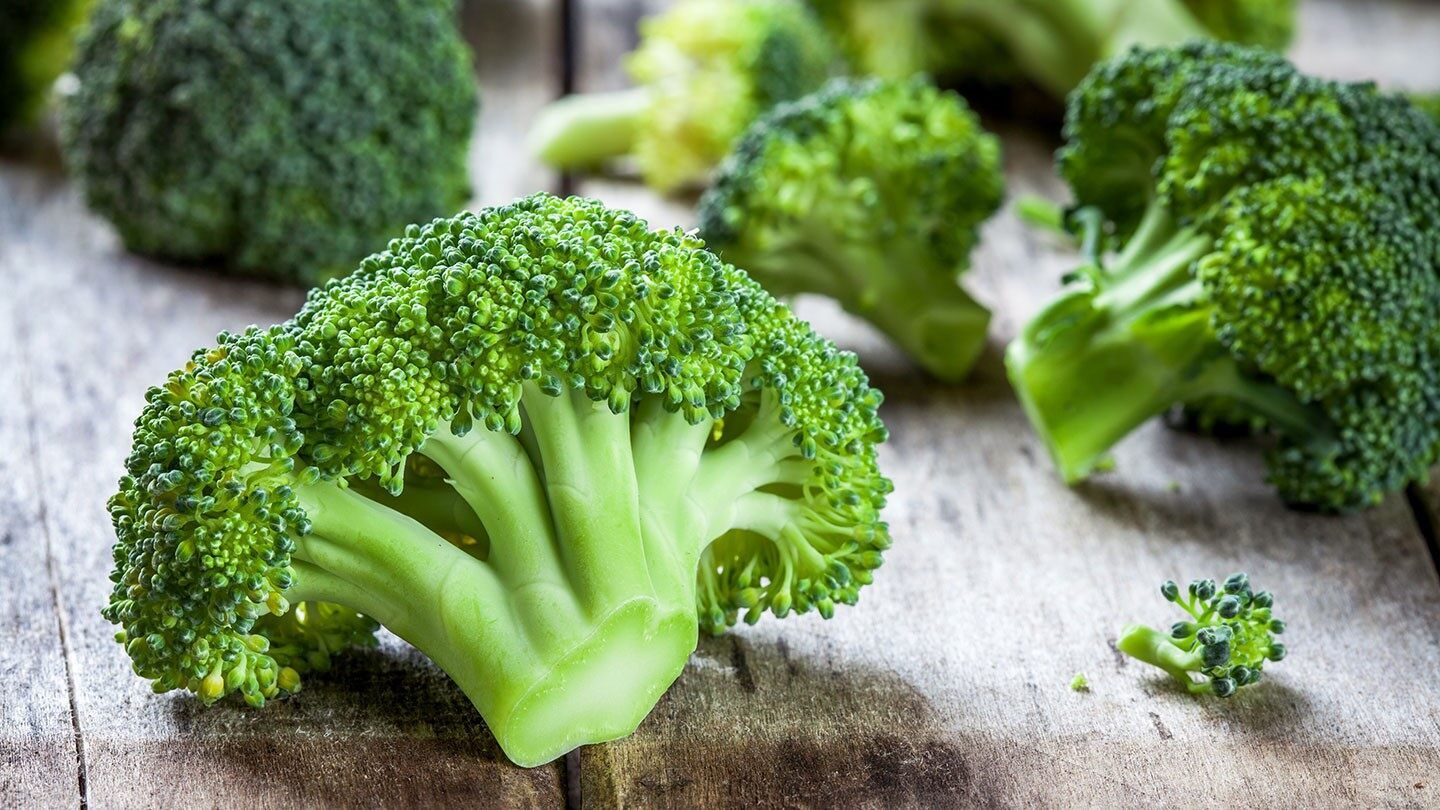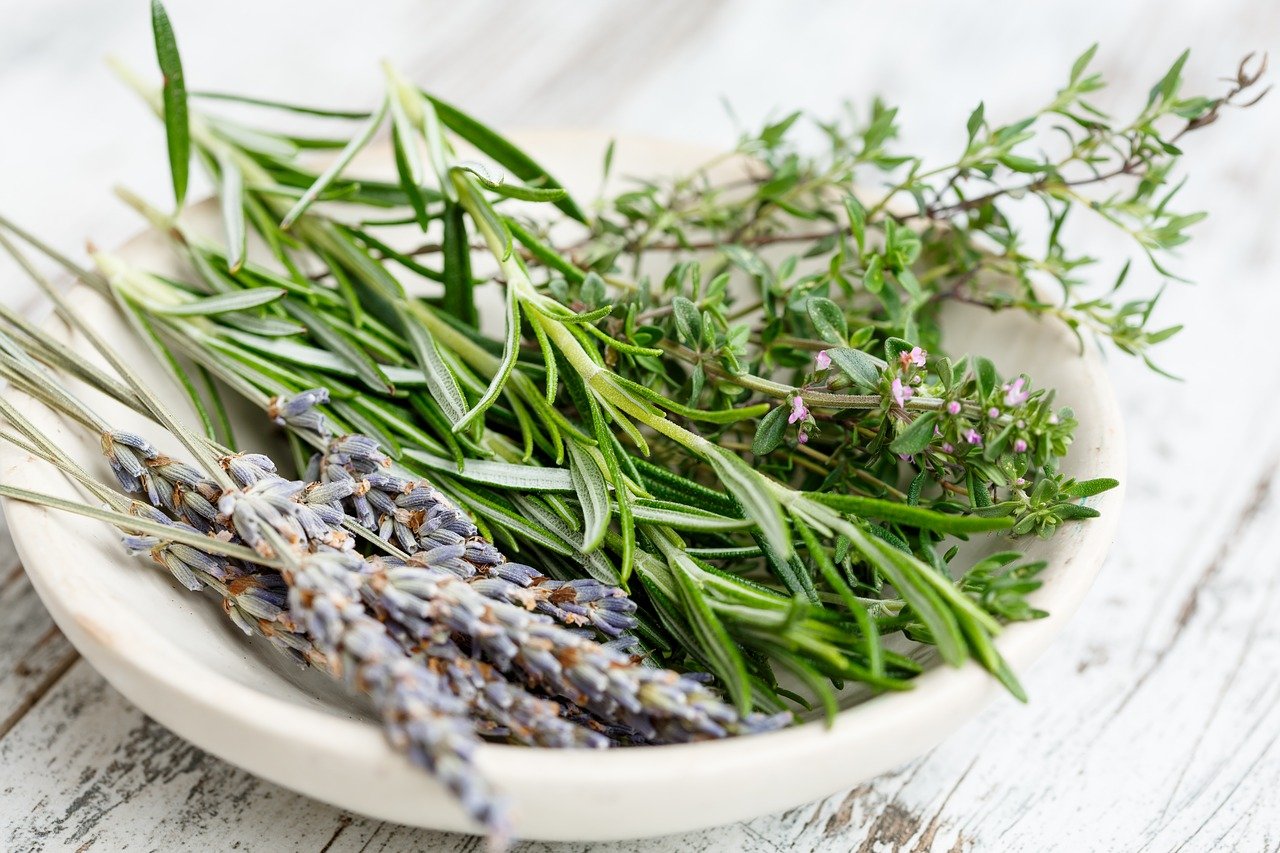Home>Gardening News and Trends>Latest News>What Vegetables Good For Thyroid


Latest News
What Vegetables Good For Thyroid
Published: October 17, 2023
Discover the Latest News on What Vegetables Are Good for Thyroid Health. Explore the Top Choices to Support Your Thyroid Function and Overall Well-being.
(Many of the links in this article redirect to a specific reviewed product. Your purchase of these products through affiliate links helps to generate commission for Chicagolandgardening.com, at no extra cost. Learn more)
Table of Contents
Introduction
Welcome to the world of thyroid health! In today’s fast-paced and stress-filled society, it’s essential to take care of ourselves and prioritize our well-being. One vital aspect of our overall health is the proper functioning of the thyroid gland. The thyroid plays a significant role in regulating our metabolism, energy levels, mood, and more.
When the thyroid gland is not functioning optimally, it can lead to a variety of health issues, including fatigue, weight gain or loss, depression, and even hair loss. Fortunately, there are steps we can take to support and maintain the health of our thyroid, including adopting a healthy and balanced diet.
Our daily food choices have a profound impact on our overall health, including our thyroid health. Incorporating specific vegetables into our diet can provide essential nutrients that support thyroid function and promote overall well-being. In this article, we will delve into the world of vegetables and their impact on thyroid health. So, let’s embark on this journey of discovering the incredible power of vegetables for a healthy thyroid.
Understanding the Thyroid
Before we dive into the relationship between vegetables and thyroid health, let’s take a moment to understand the thyroid gland itself. The thyroid is a small, butterfly-shaped gland located in the front of the neck, just below the Adam’s apple. Despite its small size, this gland plays a crucial role in regulating various bodily functions.
The primary function of the thyroid gland is to produce hormones that help regulate metabolism. These hormones, known as thyroxine (T4) and triiodothyronine (T3), are responsible for maintaining the body’s energy levels, body temperature, heart rate, and digestion.
The production of T4 and T3 hormones is regulated by the pituitary gland, a tiny gland located at the base of the brain. The pituitary gland releases thyroid-stimulating hormone (TSH), which signals the thyroid gland to produce and release thyroid hormones into the bloodstream.
Several factors can disrupt the normal functioning of the thyroid gland, resulting in either an underactive thyroid (hypothyroidism) or an overactive thyroid (hyperthyroidism). Hypothyroidism occurs when the thyroid gland does not produce enough thyroid hormones, while hyperthyroidism occurs when the thyroid gland produces an excessive amount of hormones.
These thyroid disorders can lead to a wide range of symptoms, including fatigue, weight changes, mood swings, hair loss, and difficulty concentrating. Therefore, it is crucial to maintain a healthy thyroid to support overall well-being and vitality.
Now that we have a basic understanding of the thyroid’s role in our body let’s explore how diet, specifically incorporating thyroid-boosting vegetables, can help support the overall health of this vital gland.
Importance of a Healthy Thyroid
A healthy thyroid is essential for our overall well-being and vitality. The thyroid gland plays a significant role in regulating various bodily functions, including metabolism, energy production, and the functioning of major organs such as the heart, brain, and liver. Therefore, maintaining a healthy thyroid is crucial for ensuring optimal physical and mental health.
One of the primary functions of the thyroid gland is to regulate the body’s metabolism. Metabolism refers to the process by which our bodies convert food into energy. When the thyroid gland is functioning optimally, it produces an adequate amount of thyroid hormones (T4 and T3), which help regulate the metabolism of carbohydrates, proteins, and fats.
A healthy thyroid also ensures proper energy production in the body. Thyroid hormones play a crucial role in converting food into energy and distributing it to various organs and tissues. When the thyroid is functioning optimally, we experience stable energy levels throughout the day, allowing us to stay active and productive.
In addition to metabolism and energy regulation, a healthy thyroid supports the proper functioning of the cardiovascular system. Thyroid hormones influence heart rate and cardiac output, ensuring that our heart beats at a normal rate and maintains good blood circulation throughout the body.
The thyroid gland also plays a vital role in brain function. Thyroid hormones are essential for the development and maturation of the brain, especially during fetal development and early childhood. They also influence cognitive function, memory, and mood regulation. Therefore, an imbalance in thyroid hormone levels can lead to cognitive impairments and mood disorders.
Furthermore, a healthy thyroid is crucial for maintaining healthy hair, skin, and nails. Thyroid hormones promote the growth and maintenance of these tissues, ensuring that they remain strong, vibrant, and healthy.
In summary, a healthy thyroid is essential for overall physical and mental well-being. It regulates our metabolism, energy levels, heart function, brain function, and the health of our hair, skin, and nails. Therefore, taking steps to support thyroid health, including a proper diet, is of utmost importance for a happy and healthy life.
Role of Diet in Thyroid Health
When it comes to supporting our thyroid health, diet plays a crucial role. The foods we consume provide the building blocks for our body’s essential hormones and biochemical processes, including those related to the thyroid gland. Therefore, making mindful choices about what we eat can significantly impact the health and function of our thyroid.
One key aspect of a thyroid-supportive diet is ensuring adequate intake of essential nutrients. The thyroid requires specific nutrients to produce thyroid hormones efficiently. These include iodine, selenium, zinc, iron, vitamin D, and B vitamins.
Iodine is particularly crucial for thyroid health, as it is a key component of thyroid hormones. Good sources of iodine include seaweed, seafood, and iodized salt. However, it’s important to note that excessive iodine intake can also be detrimental to thyroid health, so moderation is key.
Selenium is another essential mineral that supports thyroid function. It plays a role in the conversion of T4 hormone to the active T3 hormone, and it also helps reduce inflammation in the thyroid gland. Good sources of selenium include Brazil nuts, seafood, and organ meats.
Zinc, iron, and vitamin D are important for optimal thyroid function and hormone production. Including foods such as lean meats, legumes, nuts, fortified cereals, and dairy products can help meet these nutrient needs.
B vitamins, particularly vitamin B12 and folate, are important for the synthesis and metabolism of thyroid hormones. Foods rich in B vitamins include leafy greens, whole grains, dairy products, and lean meats.
In addition to these specific nutrients, a balanced and varied diet is essential for overall thyroid health. Including a wide range of fruits, vegetables, whole grains, lean proteins, and healthy fats can provide a diverse array of nutrients that support overall well-being, including thyroid function.
On the flip side, there are certain foods that may interfere with thyroid function if consumed in excess. Foods like soy, cruciferous vegetables (e.g., broccoli, cauliflower, cabbage), and raw goitrogenic vegetables (e.g., kale, spinach) contain compounds that can interfere with thyroid hormone production or utilization. However, these effects are generally minimal and only become a concern when consumed in large quantities or when someone has an iodine deficiency.
Overall, adopting a balanced and nutrient-rich diet is key to supporting thyroid health. By including foods that provide essential nutrients and avoiding excessive consumption of foods that may interfere with thyroid function, we can create an optimal environment for a healthy thyroid.
Vegetables and Thyroid Health
When it comes to supporting thyroid health, incorporating a variety of vegetables into our diet can be highly beneficial. Vegetables are not only rich in essential vitamins, minerals, and antioxidants but also offer specific compounds that can support thyroid function and promote overall well-being.
Here are ten vegetables known for their thyroid-boosting properties:
- Broccoli: Broccoli is a cruciferous vegetable rich in antioxidants and sulfur compounds that can support detoxification pathways in the body. It also contains high levels of fiber, which aids digestion and supports overall gut health.
- Spinach: Spinach is a leafy green vegetable packed with important nutrients like iron, vitamin C, and vitamin K. It also contains antioxidants that help reduce oxidative stress and inflammation in the body.
- Kale: Another nutrient-dense leafy green, kale is a great source of essential vitamins and minerals, including vitamin A, vitamin C, and calcium. It is also rich in antioxidants that protect against cell damage.
- Brussels Sprouts: Brussels sprouts are a cruciferous vegetable that provides a good amount of fiber, vitamin C, and vitamin K. They also contain antioxidants and compounds that support the body’s natural detoxification processes.
- Cabbage: Cabbage is a versatile vegetable that offers numerous health benefits. It is high in fiber and contains compounds that assist in detoxification. It is also a good source of vitamin C and vitamin K.
- Cauliflower: Cauliflower is a cruciferous vegetable that is low in calories but high in nutrients. It provides vitamins C and K, as well as fiber. Cauliflower can be a great substitute for starchy foods in a low-carb diet.
- Bok Choy: Bok choy is a type of Chinese cabbage that packs a nutritional punch. It is high in vitamins A, C, and K, as well as calcium and potassium. Bok choy is also rich in antioxidants that help protect against cell damage.
- Radishes: Radishes are a root vegetable known for their crisp texture and peppery flavor. They are a good source of vitamin C, fiber, and potassium. Radishes can help support digestion and may have anti-inflammatory properties.
- Asparagus: Asparagus is a nutrient-dense vegetable that is rich in vitamins A, C, E, and K. It is also a good source of fiber and folate. Asparagus supports healthy digestion and offers antioxidant and anti-inflammatory benefits.
- Sweet Potatoes: Sweet potatoes are a nutritious root vegetable rich in fiber, vitamins A and C, and potassium. They have a lower glycemic index compared to regular potatoes, making them a healthier carbohydrate option.
Incorporating these vegetables into our diet can provide a wealth of nutrients that support thyroid function and overall health. Remember to enjoy them in a variety of ways, such as raw, steamed, roasted, or sautéed, to maximize their nutritional benefits.
Broccoli
Broccoli is a versatile and nutrient-rich vegetable that offers numerous health benefits. It belongs to the cruciferous family of vegetables, which are known for their potent health-promoting properties. When it comes to supporting thyroid health, broccoli is a standout option.
Broccoli is packed with vitamins, minerals, fiber, and antioxidants, making it an excellent addition to any diet. It is a rich source of vitamin C, which is important for supporting immune function and promoting the absorption of iron in the body. Additionally, broccoli contains vitamin K, which is essential for proper blood clotting and bone health.
One of the unique compounds found in broccoli is sulforaphane. Sulforaphane is a sulfur-containing compound that has been studied for its potential anti-cancer and anti-inflammatory effects. It also supports the body’s natural detoxification processes by aiding in the elimination of harmful substances.
When it comes to thyroid health, broccoli shines due to its rich iodine content. Iodine is a mineral that is essential for the production of thyroid hormones. Including iodine-rich foods in our diet, such as broccoli, can help ensure adequate iodine intake and support thyroid function.
Furthermore, broccoli contains a compound called indole-3-carbinol, which has been shown to help balance estrogen levels in the body. This can be particularly beneficial for individuals with thyroid issues, as imbalances in estrogen can impact thyroid function and hormone production.
Enjoying broccoli is easy, as it can be eaten raw or cooked. Steaming or lightly sautéing broccoli helps retain its nutritional content while adding a delightful crunch to any dish. It can be enjoyed as a side vegetable, added to stir-fries, soups, salads, or even blended into a smoothie for an extra nutrient boost.
It’s important to note that if you have a diagnosed thyroid condition or are taking thyroid medication, it’s always a good idea to speak with your healthcare provider or a registered dietitian before making any major dietary changes.
With its wealth of nutrients and thyroid-supportive compounds, broccoli is undoubtedly an excellent vegetable to include in a thyroid-boosting diet.
Spinach
Spinach, with its vibrant green leaves and nutrient-packed profile, is a vegetable that offers numerous health benefits, including support for thyroid health.
Spinach is rich in essential vitamins and minerals, making it a nutritional powerhouse. It is an excellent source of vitamins A, C, E, and K. Vitamin A is essential for proper cell growth and immune function, while vitamin C is known for its antioxidant properties and its role in collagen production. Vitamin E acts as an antioxidant, protecting cells from damage, and vitamin K plays a crucial role in blood clotting and bone health.
In addition to vitamins, spinach is also a great source of minerals like iron, magnesium, and potassium. Iron is important for the production of red blood cells and energy metabolism, while magnesium plays a role in hundreds of biochemical reactions in the body. Potassium is essential for maintaining healthy blood pressure levels and proper nerve and muscle function.
When it comes to thyroid health, spinach offers several key benefits. First and foremost, it is a rich source of iodine, a mineral necessary for the production of thyroid hormones. Including iodine-rich foods like spinach in our diet helps ensure adequate iodine intake and supports proper thyroid function.
Spinach is also rich in antioxidants, particularly carotenoids like beta-carotene and lutein. These compounds help protect the body’s cells from damage caused by harmful free radicals, which are produced as a byproduct of metabolism. By reducing oxidative stress and inflammation, spinach can support overall thyroid health.
Furthermore, spinach is a good source of fiber, which aids in digestion and promotes a healthy gut. A healthy gut is important for nutrient absorption and the conversion of inactive thyroid hormone (T4) to its active form (T3), thereby promoting proper thyroid function.
Adding spinach to your diet is easy and versatile. It can be enjoyed raw in salads, blended into smoothies, or lightly cooked as a side vegetable or an addition to various dishes like omelets, soups, or stir-fries. However, keep in mind that cooking spinach can decrease its vitamin C content, so if you prefer to consume it cooked, it’s best to lightly steam or sauté it.
As always, if you have a diagnosed thyroid condition or are taking thyroid medication, it’s important to consult with a healthcare professional or registered dietitian before making any significant dietary changes.
With its nutrient profile and thyroid-supporting benefits, spinach is a fantastic vegetable to incorporate into your diet for optimal thyroid health.
Kale
Kale, with its dark leafy greens and impressive nutritional profile, has gained popularity as a superfood in recent years. Not only is kale delicious and versatile, but it also offers numerous health benefits, including support for thyroid health.
Kale is highly nutritious and packed with essential vitamins and minerals. It is a rich source of vitamins A, C, and K, all of which are crucial for overall health. Vitamin A is necessary for cell growth, immune function, and vision. Vitamin C is a powerful antioxidant that supports the immune system and aids in collagen production. Vitamin K is important for blood clotting and bone health.
One of the key nutritional components of kale is its iodine content. Adequate iodine intake is essential for proper thyroid function, as iodine is a necessary component of thyroid hormones. Including iodine-rich foods like kale in our diet can help support the production of thyroid hormones and maintain optimal thyroid health.
Kale is also rich in antioxidants, particularly a group of compounds called flavonoids and carotenoids. These antioxidants help protect the body’s cells from oxidative stress and inflammation caused by harmful free radicals. By reducing inflammation and protecting against cell damage, kale can support thyroid health and overall well-being.
One notable group of antioxidants found in kale is glucosinolates. These compounds have been studied for their potential anti-cancer properties and their ability to support detoxification pathways in the body. In addition to supporting overall health, these properties can also contribute to thyroid health by promoting a clean and efficient system.
Another significant benefit of kale is its high fiber content. Fiber is crucial for maintaining a healthy digestive function and promoting a diverse gut microbiome. A healthy gut is important for nutrient absorption, which is essential for proper thyroid hormone production and metabolism.
Kale is a versatile vegetable that can be enjoyed in a variety of ways. It can be eaten raw in salads, blended into smoothies, or lightly cooked by sautéing or steaming. Its robust texture and slightly bitter taste make it a great addition to soups, stir-fries, and even as a flavorful topping for pizzas or sandwiches.
As with any dietary changes, it’s always best to consult with a healthcare professional or registered dietitian, especially if you have a diagnosed thyroid condition or are taking thyroid medication.
With its impressive nutrient profile and thyroid-supportive benefits, kale is a fantastic vegetable to incorporate into your diet for optimal thyroid health.
Brussels Sprouts
Brussels sprouts, often overlooked but highly nutritious, are a fantastic vegetable that can support thyroid health. These miniature cabbage-like vegetables offer a range of health benefits due to their impressive nutrient profile.
Brussels sprouts are an excellent source of vitamins, minerals, and antioxidants. They are particularly rich in vitamin C, vitamin K, and folate. Vitamin C is a potent antioxidant that supports immune function and collagen production. Vitamin K is essential for blood clotting and bone health, while folate plays a crucial role in DNA synthesis and cell division.
One of the standout features of Brussels sprouts is their high content of glucosinolates. These compounds have been shown to have potential anti-cancer properties and are known to support detoxification processes in the body. By aiding in the elimination of harmful toxins, Brussels sprouts contribute to overall thyroid health and well-being.
Another important component of Brussels sprouts is their fiber content. Fiber is essential for digestion and gut health, promoting regular bowel movements and supporting a healthy gut microbiome. A healthy gut is important for nutrient absorption and the conversion of inactive thyroid hormone (T4) to active thyroid hormone (T3), aiding in proper thyroid function.
Brussels sprouts are also rich in antioxidants, including flavonoids and carotenoids. These antioxidants help protect the body’s cells from damage caused by harmful free radicals, reducing oxidative stress and inflammation. By reducing inflammation, Brussels sprouts can contribute to thyroid health and overall wellness.
When it comes to preparing Brussels sprouts, there are various ways to enjoy them. They can be roasted, sautéed, steamed, or even shredded raw in salads. Roasting Brussels sprouts enhances their natural sweetness, while sautéing them with garlic and a touch of olive oil brings out their rich flavors. Incorporating these flavorful vegetables into your meals can provide a delicious and nutritious addition to support thyroid health.
If you have a diagnosed thyroid condition or are taking thyroid medication, it’s always a good idea to consult with a healthcare professional or registered dietitian before making any significant dietary changes.
With their robust nutritional profile and thyroid-supportive properties, Brussels sprouts are a fantastic vegetable to include in your diet for optimal thyroid health.
Cabbage
Cabbage, a humble and versatile vegetable, offers a multitude of health benefits and can play a role in supporting thyroid health. This cruciferous vegetable is not only low in calories but also packed with essential nutrients and compounds that promote overall well-being.
Cabbage is an excellent source of vitamins, minerals, and antioxidants. It is rich in vitamin C, an essential nutrient that supports the immune system, collagen production, and iron absorption. Vitamin K, another important nutrient found in cabbage, plays a crucial role in blood clotting and bone health. Additionally, cabbage contains beneficial polyphenols, which act as antioxidants and help reduce inflammation in the body.
One of the notable compounds found in cabbage is glucosinolates. These compounds are responsible for the characteristic pungent smell and bitter taste of cabbage. Glucosinolates have been extensively studied for their potential anti-cancer properties and their ability to support detoxification processes in the body. By promoting healthy detoxification, cabbage can contribute to overall thyroid health.
Cabbage is also an excellent source of fiber, which is crucial for maintaining a healthy digestive system. Adequate fiber intake promotes regular bowel movements, supports a diverse gut microbiome, and aids in nutrient absorption. A healthy gut is vital for thyroid health, as it helps with the conversion of inactive thyroid hormone (T4) to active thyroid hormone (T3).
In addition to its nutritional profile, cabbage is a cost-effective and versatile vegetable that can be enjoyed in various ways. It can be eaten raw in salads, fermented as sauerkraut or kimchi, or cooked in stir-fries, soups, or stews. Cabbage’s mild flavor makes it a versatile ingredient that can complement a wide range of dishes.
Should you have a diagnosed thyroid condition or are taking thyroid medication, it’s always advisable to consult with a healthcare professional or registered dietitian before making significant dietary changes.
With its nutrient density and thyroid-supportive properties, cabbage is an excellent vegetable to incorporate into your diet for optimal thyroid health.
Cauliflower
Cauliflower, a versatile and nutritious vegetable, is gaining popularity for its numerous health benefits and its potential to support thyroid health.
Cauliflower is low in calories but rich in essential vitamins and minerals. It is an excellent source of vitamin C, which supports immune function and collagen synthesis. Cauliflower also provides vitamin K, which is essential for blood clotting and bone health. Additionally, it is a good source of folate, a B vitamin necessary for DNA synthesis and cell division.
One of the standout features of cauliflower is its high content of glucosinolates. These compounds have been studied for their potential anti-cancer properties and their ability to support detoxification in the body. By aiding in the removal of toxins, cauliflower can contribute to overall thyroid health and well-being.
Cauliflower is also high in fiber, which is beneficial for digestive health. Adequate fiber intake promotes regular bowel movements, supports a healthy gut microbiome, and aids in nutrient absorption. A healthy gut is important for thyroid health, as it plays a role in the conversion of thyroid hormones.
Furthermore, cauliflower is an excellent alternative for those looking to reduce their carbohydrate intake. It can be used as a substitute for starchy vegetables or grains in various dishes. This is particularly beneficial for individuals following low-carb or keto diets, as it provides a satisfying and nutrient-rich option.
Cauliflower can be enjoyed in many ways. It can be steamed, roasted, mashed, or even grated to create cauliflower rice. It serves as a versatile ingredient that can be incorporated into stir-fries, soups, salads, casseroles, and even used as a crust substitute in pizza.
If you have a diagnosed thyroid condition or are taking thyroid medication, it’s always advisable to consult with a healthcare professional or registered dietitian before making significant dietary changes.
With its impressive nutritional profile and thyroid-supportive properties, cauliflower is a fantastic vegetable to include in your diet for optimal thyroid health.
Bok Choy
Bok choy, also known as Chinese cabbage, is a leafy green vegetable that offers a range of health benefits, making it an excellent addition to a thyroid-supportive diet.
Bok choy is packed with essential nutrients, including vitamins A, C, and K, as well as calcium and potassium. Vitamin A supports immune function and vision, while vitamin C is a potent antioxidant that aids in collagen synthesis and supports the immune system. Vitamin K is essential for blood clotting and bone health. Calcium is crucial for maintaining strong bones and teeth, while potassium is important for proper muscle and nerve function.
One of the key features of bok choy is its high antioxidant content. Antioxidants help protect cells from damage caused by harmful free radicals and reduce oxidative stress. By reducing inflammation and protecting against cell damage, bok choy can contribute to thyroid health.
Bok choy is also known for its high fiber content. Fiber is essential for maintaining good digestive health and promoting regular bowel movements. Additionally, it supports a healthy gut microbiome, which is crucial for the absorption of nutrients and the conversion of thyroid hormones.
In addition to its nutritional benefits, bok choy contains glucosinolates, compounds that have been studied for their potential anti-cancer properties. These compounds also support the body’s natural detoxification processes.
Bok choy is a versatile vegetable that can be enjoyed in a variety of ways. It can be eaten raw in salads, added to stir-fries, soups, or stews, or even lightly sautéed as a side dish. Its mild and slightly crisp texture makes it a great addition to many recipes.
If you have a diagnosed thyroid condition or are taking thyroid medication, it’s always recommended to consult with a healthcare professional or registered dietitian before making significant dietary changes.
With its nutrient density, antioxidant content, and thyroid-supportive properties, bok choy is a fantastic vegetable to include in your diet for optimal thyroid health.
Radishes
Radishes, with their vibrant colors and crisp texture, are nutrient-rich root vegetables that offer a range of health benefits, including support for thyroid health.
Radishes are a good source of vitamin C, providing immune-boosting properties and aiding in collagen production. They also contain significant amounts of potassium, which supports nerve and muscle function, and manganese, which helps regulate metabolism and supports bone health.
One of the notable qualities of radishes is their high water content, which makes them hydrating and refreshing. Staying properly hydrated is important for overall health, including thyroid function.
In addition to their nutrient content, radishes contain fiber, which supports digestive health by promoting regular bowel movements and feeding beneficial gut bacteria. A healthy gut is essential for nutrient absorption and the conversion of thyroid hormones.
Radishes also offer a unique group of compounds called isothiocyanates, which contribute to their distinctive spicy flavor. These compounds have been studied for their potential anti-cancer properties and their ability to promote detoxification processes in the body.
Enjoying radishes is easy, as they can be eaten raw or cooked. They can be sliced and added to salads, used as a crunchy topping for various dishes, or even pickled for a tangy and flavorful treat. Their versatility makes radishes a fun and nutritious addition to your thyroid-supportive diet.
If you have a diagnosed thyroid condition or are taking thyroid medication, it’s always advisable to consult with a healthcare professional or registered dietitian before making significant dietary changes.
With their hydrating properties, fiber content, and unique isothiocyanates, radishes are a delightful vegetable to incorporate into your diet for optimal thyroid health.
Asparagus
Asparagus, with its distinctive flavor and tender spears, is a versatile vegetable that offers a range of health benefits, including support for thyroid health.
Asparagus is a nutrient-dense vegetable that is low in calories but high in essential vitamins and minerals. It is an excellent source of vitamins A, C, E, and K. Vitamin A supports immune function and vision, while vitamin C is a potent antioxidant that aids in collagen synthesis and supports the immune system. Vitamin E acts as an antioxidant, protecting cells from damage, and vitamin K is crucial for blood clotting and bone health.
In addition to vitamins, asparagus provides dietary fiber, which promotes healthy digestion and regular bowel movements. Adequate fiber intake supports a healthy gut microbiome and aids in nutrient absorption, including the conversion of thyroid hormones in the body.
Asparagus also contains antioxidant compounds, including glutathione, that help protect cells from oxidative stress. By reducing inflammation and protecting against cell damage, asparagus contributes to overall thyroid health.
Furthermore, asparagus is a natural diuretic, meaning it promotes the production of urine and helps flush out excess fluids and toxins from the body. This can be beneficial for individuals experiencing water retention or bloating related to thyroid dysfunction.
Asparagus can be enjoyed in various ways. It can be roasted, grilled, steamed, or sautéed with a touch of olive oil and seasoning to enhance its natural flavors. It can be a tasty addition to salads, omelets, stir-fries, or pasta dishes.
If you have a diagnosed thyroid condition or are taking thyroid medication, it’s always a good idea to consult with a healthcare professional or registered dietitian before making significant dietary changes.
With its nutrient profile, fiber content, and antioxidant properties, asparagus is a delicious vegetable to include in your diet for optimal thyroid health.
Sweet Potatoes
Sweet potatoes, with their naturally sweet and vibrant orange flesh, are not only delicious but also offer a plethora of health benefits, including support for thyroid health.
Sweet potatoes are an excellent source of vitamins and minerals, making them a nutrient-packed vegetable. They are particularly rich in vitamin A, providing more than 100% of the recommended daily intake in just one medium-sized sweet potato. Vitamin A is crucial for immune function, vision health, and cell growth.
In addition to vitamin A, sweet potatoes are a good source of vitamin C, which supports the immune system and aids in collagen production. They also contain potassium, an essential mineral that helps regulate blood pressure and fluid balance within the body.
One of the standout features of sweet potatoes is their rich content of antioxidants, particularly beta-carotene. Beta-carotene is responsible for the vibrant orange color of sweet potatoes and is converted to vitamin A in the body. Antioxidants help protect cells from oxidative damage and reduce inflammation, contributing to overall thyroid health.
Furthermore, sweet potatoes offer a healthy dose of dietary fiber. Fiber is essential for maintaining a healthy digestive system, promoting regular bowel movements, and supporting a healthy gut microbiome. A healthy gut is particularly important for individuals with thyroid issues, as it aids in the conversion of thyroid hormones.
Sweet potatoes are incredibly versatile in the kitchen and can be enjoyed in various ways. They can be baked, boiled, roasted, or mashed. Their natural sweetness pairs well with both sweet and savory dishes. From sweet potato fries and casseroles to soups and salads, there are endless possibilities to incorporate this nutritious vegetable into your meals.
If you have a diagnosed thyroid condition or are taking thyroid medication, it’s always wise to consult with a healthcare professional or registered dietitian before making significant dietary changes.
With their vitamin and antioxidant content, fiber, and delicious flavor, sweet potatoes are an excellent choice to include in your diet for optimal thyroid health.
Conclusion
When it comes to supporting thyroid health, incorporating a variety of vegetables into our diet is key. Vegetables offer a wealth of essential nutrients, antioxidants, and compounds that can promote optimal thyroid function and overall well-being.
We explored ten vegetables that are particularly beneficial for thyroid health. Broccoli, with its iodine content and sulforaphane compounds, can support thyroid hormone production and detoxification pathways. Spinach is rich in iodine and antioxidants that reduce oxidative stress and inflammation. Kale provides a range of nutrients, including iodine and glucosinolates, which contribute to overall thyroid health.
Brussels sprouts, cabbage, and cauliflower are cruciferous vegetables that offer a wealth of nutrients, fiber, and detoxification support. Bok choy is a nutrient-dense vegetable with antioxidants and fiber that can aid in digestion and promote a healthy gut.
Radishes provide a refreshing crunch and are rich in vitamin C, potassium, and fiber. Asparagus offers vitamins, antioxidants, fiber, and diuretic properties that promote thyroid health and fluid balance.
Sweet potatoes, with their abundance of vitamins, antioxidants, and fiber, can support thyroid function and provide a delicious addition to meals.
It’s important to note that while these vegetables are beneficial for thyroid health, individual needs may vary. Consulting with a healthcare professional or registered dietitian is advised, especially for those with diagnosed thyroid conditions or those taking thyroid medication.
Incorporate these vegetables into your diet in various ways, from raw in salads to cooked in soups, stir-fries, or roasted dishes. Experiment with different recipes and enjoy the flavors and health benefits they offer.
Remember, a healthy diet is just one aspect of supporting thyroid health. It is essential to maintain a well-rounded lifestyle that incorporates regular physical activity, stress management, and adequate sleep. By prioritizing your thyroid health, you can optimize your overall well-being and vitality.










